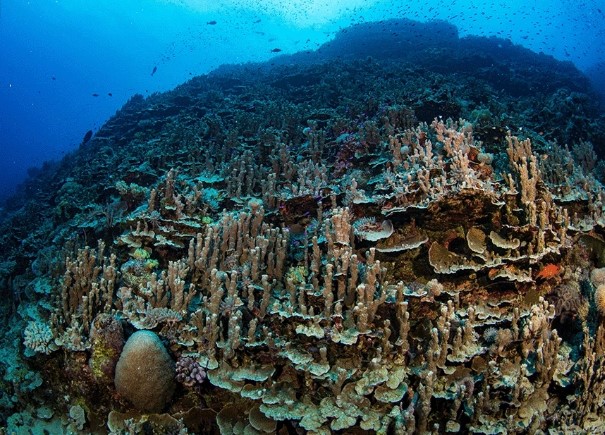
Scientists from the University of Warsaw, Adam Mickiewicz University in Poznań and the California Academy of Sciences have studied fossils of Tabulata corals from the Middle Devonian about 385 million years ago.
These organisms possessed adaptations to changing light conditions that are remarkably similar to those of today’s corals, reports the UW and reminds us that phenotypic plasticity manifests itself in the ability of a given organism to develop different characteristics, such as structure, physiology or behaviour, depending on the environmental factors affecting it. This phenomenon is part of an organism’s ‘genetic programme’ and is particularly evident in corals.
The scientists examined material from what is now Morocco, Belgium and Poland, consisting of Devonian corals from the now extinct Tabulata group, living during the great heyday of reef ecosystems, under varying light conditions.
An article presenting the results of the study was published in the journal Coral Reefs:
https://link.springer.com/article/10.1007/s00338-023-02394-4









